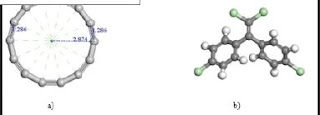Biomedical Science and Research Journals | Patient Perspective Regarding Medical Services in 21st Century
Patient Perspective Regarding Medical Services in 21st Century
Opinion
To start, I would like to mention that this document is my
opinion based on my personal experience from the previous
years. It is not meant to accuse or denigrate anyone in anyway. It
is meant to be a reflective document from a patient and business
professional perspective. In the recent years, we have witnessed a
boom of private medical practices. Do not get me wrong, this is a
good thing from economic perspective; it is good from competition
point of view as well. However, the question remains: what about
us, the patients?
Fortunately, or unfortunately, in the last few years, I had to
deal with doctors and hospitals much more than I was wishing or
expecting. I have seen doctors who are just interested in money
and they would ready to operate on “patient own reconnaissance”
and full payment upfront until really professionals who had time
to discuss with me the options, recommend the best minimum
invasive method for me, explain the risks and provide guarantee
for their work. In simple words, I have met doctors, not so much
famous, who are consistent with their call and for them the priority
is still the well-being of the patient, as well as famous doctors, and
“well recommended” for whom the priority was only money and no
responsibility for their actions.
So, what is the solution? Where do we, the patients, stand?
I would say that the selection on the market is ongoing. It is
important for the patient to document well before taking any
major decisions about any major procedure and to test the doctor’s
knowledge as well. The patients can as well-read reviews, ask for
contact details of happy and unhappy patients in order to have
a full image of what to expect. When your integrity and life is at
stake, I believe us, the patients, are entitled to take all the necessary
precautions and measures in order to select the best available
medical care.
The next step is how do I find reliable sources to be
informed? I would strongly advise to start from US Food and Drug
Administration website (https://www.fda.gov/) where you can
find comprehensive information about safe medical technology,
procedures, side effects reported, etc. Next, there are several
websites of ministries of health from each country from where you
can complement the information. My next step would be medical
professional blogs where there are many articles posted and where
patients can address questions and get opinions from a variety of
doctors.
Another issue mentioned often by my friends and first-hand
experienced by myself as well is the lack of proper communication
skills among the doctors. As a patient, I strongly believe that
communication course should be “a must” in the medical school
for atleast 1 year, because proper communication with patients
increase the success rate of treatments as well the trust in the care
provider.
Being so connected with technology nowadays and with access
to such amount of information, as a patient, you do not have any
excuse for not being informed or for not searching for information.
It is also your responsibility to “do your homework” in advance
(whenever is possible) and work in a partnership with the chosen
medical provider in order to get the best possible output.
An old saying mentions that prevention is better than cure. With
this thought in mind, I would like to recommend all the patients to
make a priority out of their wellbeing because this body is the one
who will take us through life. If we take good care of it inside and
outside, we can have a smooth journey through life.
To view fulltext of article:https://biomedgrid.com/fulltext/volume3/patient-perspective-regarding-medical-services-in-21st-century.000718.php


Comments
Post a Comment